Here are my favorite Women’s Day poems categorized:
- Short inspirational poems for Women’s Day
- Women’s Day poems for wives
- Poems on women empowerment
- Funny Women’s Day poems
So if you want the best Women’s Day poems, then you’re in the right place.
Let’s jump right in!
- 161 Adoring Valentine’s Poems for Her
- 61 Heartfelt Valentine’s Day Poems for Him
- 89 Passionate Wedding Love Poems
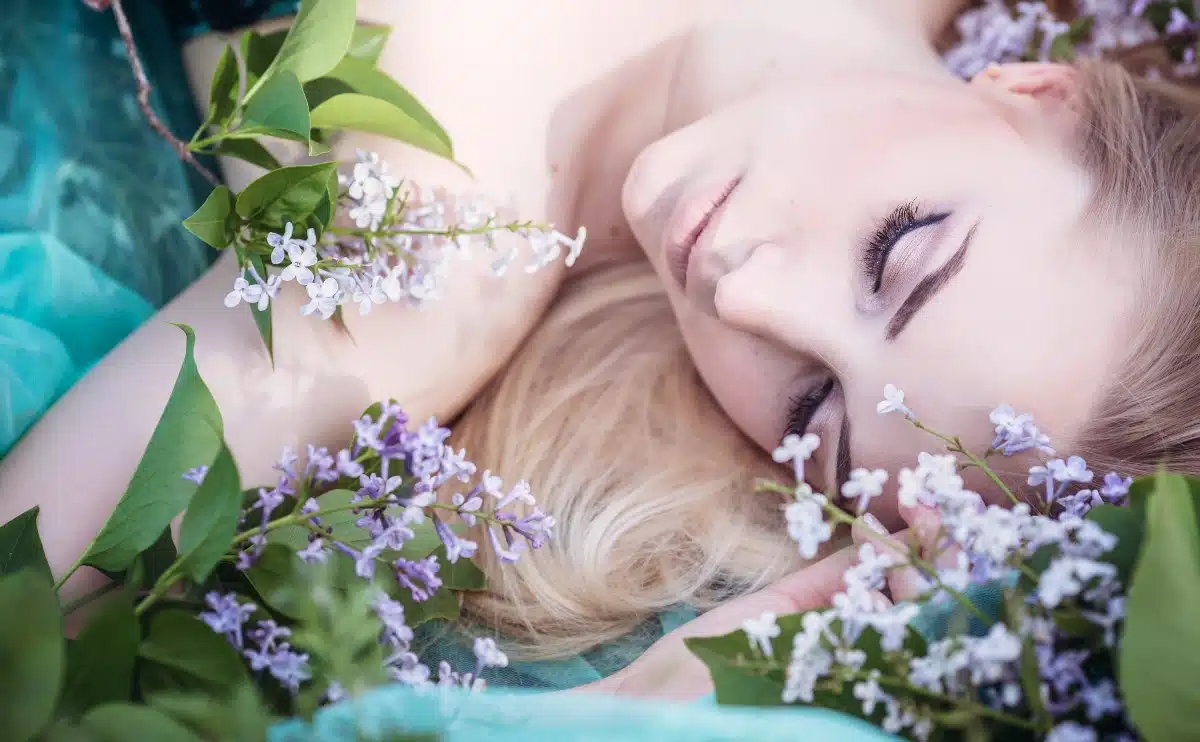
Inspiring Women’s Day Poems
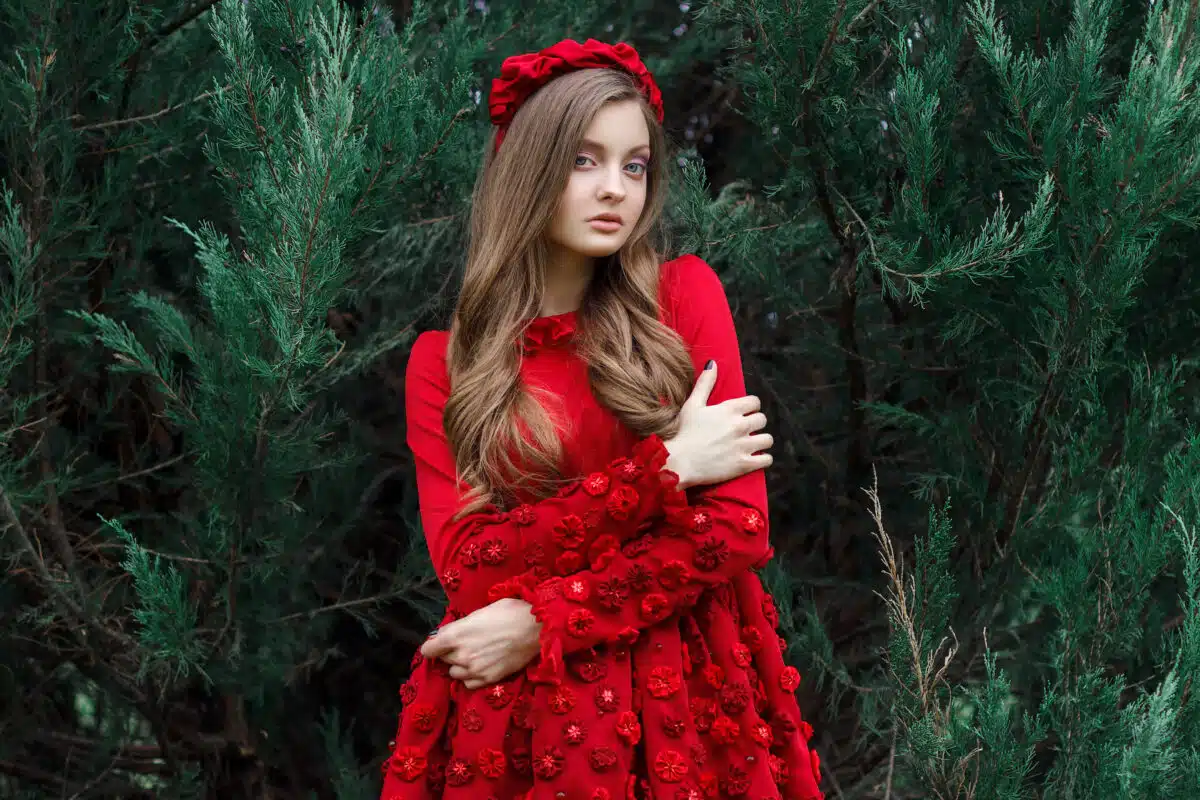
Get lost with our mesmerizing collection of women’s day poems that celebrate the powerful force of women and the smiles they bring to the lips of the people around them, all in one place for your convenience.
We’re ready to serve you with short poems that bring the spotlight to womanhood in to poems that will give you a laugh or two and make your day happier.
Whether you’re looking for poems to boost your confidence as a woman or poems to celebrate the women in your life, this collection will surely leave you in awe.
Let’s go!
My #1 Favorite Women’s Day Poem
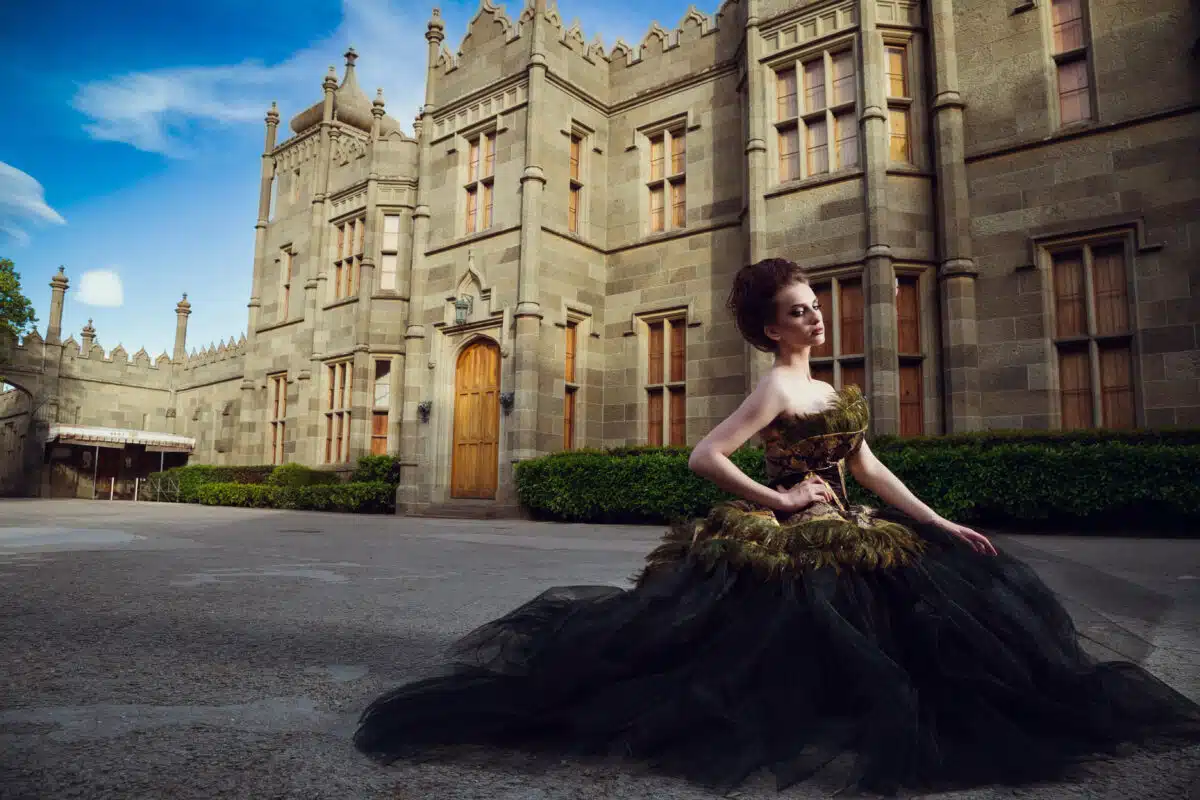
“The Modern Woman to Her Lover” by Margaret Widdemer
I shall not lie to you any more,
Flatter or fawn to attain my end—
I am what never has been before,
Woman—and Friend.
I shall be strong as a man is strong,
I shall be fair as a man is fair,
Hand in locked hand we shall pass along
To a purer air:
I shall not drag at your bridle-rein,
Knee pressed to knee shall we ride the hill;
I shall not lie to you ever again—
Will you love me still?
Short Inspirational Poems for Women’s Day
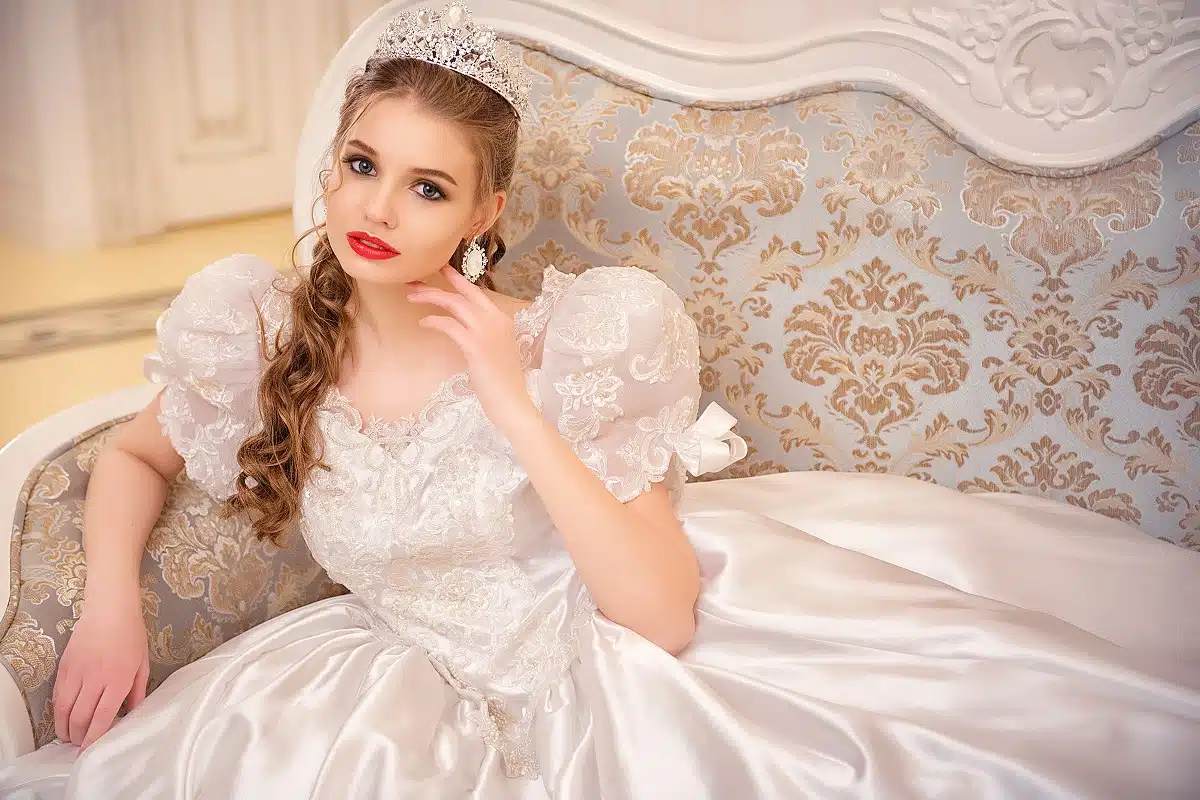
“Woman” by Jean Blewett
Not faultless, for she was not fashioned so,
A mingling of the bitter and the sweet;
Lips that can laugh and sigh and whisper low
Of hope and trust and happiness complete,
Or speak harsh truths; eyes that can flash with fire,
Or make themselves but wells of tenderness
Wherein is drowned all bitterness and ire –
Warm eyes whose lightest glance is a caress.
Heaven sent her here to brighten this old earth,
And only heaven fully knows her worth.
“The True Woman” by Edmund Spenser
Thrice happy she that is so well assur’d
Unto herself, and settled so in heart,
That neither will for better be allur’d,
Ne fears to worse with any chance to start,
But like a steady ship doth strongly part
The raging waves, and keeps her course aright;
Ne ought for tempest doth from it depart,
Ne ought for fairer weather’s false de- light.
Such self-assurance need not fear the spight
Of grudging foes, ne favor seek of friends;
But in the stay of her own stedfast might,
Neither to one herself or other bends.
Most happy she that most assur’d doth rest,
But he most happy who such one loves best.
“The Banquet” by Sappho (Percy Osborn, Translator)
Come! O come, adorable Aphrodite,
To the dainty banquet in all thy beauty;
With thy nectar heavenly fill the golden
Cups of Iacchus.

“Maidenhood” by Sappho (Percy Osborn, Translator)
Why do I fearfully cling to my maidenhood?
‘Tis but a pearl to be cast in thy waves, O Love!
“A Maiden” by Sappho (Percy Osborn, Translator)
Small and ungraceful seemed the maid erewhile:
But oh! her beauty, when I saw her smile.
“More Golden Than Gold” by Sappho (Percy Osborn, Translator)
O sweeter far in melody
Than dulcimer or psaltery;
More golden than the richest gold
The eye of man did e’er behold.

“Democracy” by Alice Duer Miller
Democracy is this—to hold
That all who wander down the pike
In cart or car, on foot or bike,
Or male or female, young or old,
Are much alike—are much alike.
“Feminism” by Alice Duer Miller
“Mother, what is a Feminist?”
“A Feminist, my daughter,
Is any woman now who cares
To think about her own affairs
As men don’t think she oughter.”
“Lady Montrevor” by Christina Rossetti
I do not look for love that is a dream—
I only seek for courage to be still;
To bear my grief with an unbending will,
And when I am a-weary not to seem.
Let the round world roll on; let the sun beam;
Let the wind blow, and let the rivers fill
The everlasting sea, and on the hill
The palms almost touch heaven, as children deem.
And, though young spring and summer pass away,
And autumn and cold winter come again,
And though my soul, being tired of its pain,
Pass from the ancient earth, and though my clay
Return to dust, my tongue shall not complain;—
No man shall mock me after this my day.

“The Heart of a Woman” by Georgia Douglas Johnson
The heart of a woman goes forth with the dawn,
As a lone bird, soft winging, so restlessly on,
Afar o’er life’s turrets and vales does it roam
In the wake of those echoes the heart calls home.
The heart of a woman falls back with the night,
And enters some alien cage in its plight,
And tries to forget it has dreamed of the stars
While it breaks, breaks, breaks on the sheltering bars.
“Beautiful Women” by Walt Whitman
Women sit, or move to and fro–some old, some young;
The young are beautiful–but the old are more beautiful than the young.
Women’s Day Poems for Wives

“My Lady” by Robert Fuller Murray
My Lady of all ladies! Queen by right
Of tender beauty; full of gentle moods;
With eyes that look divine beatitudes,
Large eyes illumined with her spirit’s light;
Lips that are lovely both by sound and sight,
Breathing such music as the dove, which broods
Within the dark and silence of the woods,
Croons to the mate that is her heart’s delight.
Where is a line, in cloud or wave or hill,
To match the curve which rounds her soft-flushed cheek?
A colour, in the sky of morn or of even,
To match that flush? Ah, let me now be still!
If of her spirit I should strive to speak,
I should come short, as earth comes short of heaven.
“Womanhood” by Madison Julius Cawein
I
The summer takes its hue
From something opulent as fair in her,
And the bright heaven is brighter than it was;
Brighter and lovelier,
Arching its beautiful blue,
Serene and soft, as her sweet gaze, o’er us.
II
The springtime takes its moods
From something in her made of smiles and tears,
And flowery earth is flowerier than before,
And happier, it appears,
Adding new multitudes
To flowers, like thoughts, that haunt us evermore.
III
Summer and spring are wed
In her-her nature; and the glamour of
Their loveliness, their bounty, as it were,
Of life and joy and love,
Her being seems to shed,-
The magic aura of the heart of her.
“The Woman” by Madison Julius Cawein
With her fair face she made my heaven,
Beneath whose stars and moon and sun
I worshiped, praying, having striven,
For wealth through which she might be won.
And yet she had no soul: A woman
As fair and cruel as a god;
Who played with hearts as nothing human,
And tossed them by and on them trod.
She killed a soul; she did it nightly;
Luring it forth from peace and prayer,
To strangle it, and laughing lightly,
Cast it into the gutter there.
And yet, not for a purer vision
Would I exchange; or Paradise
Possess instead of Hell, my prison,
Where burns the passion of her eyes.
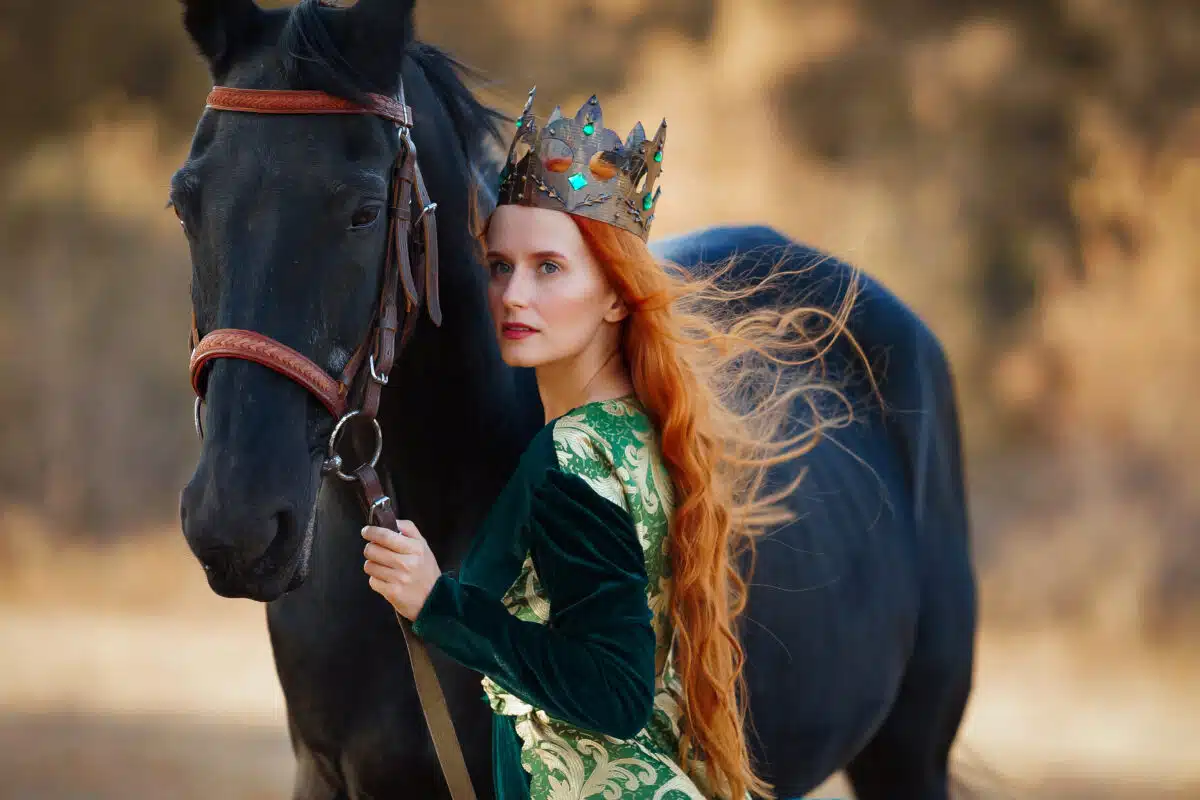
“My Queen” by Fannie Isabelle Sherrick
A fair sweet blossom is born for you,
A beautiful rose, my queen!
And never was flower so fair as this,
Oh, never so fair, I ween!
A banner is hung in the western sky
Of colors that flash ere they fade and die;
And the rippling waves where the waters run
Are stained with the gold of the summer sun;
The world is so fair for you, my queen,
The world is so fair and true;
And the rose that blossoms to-day, my own,
Is the love that I have for you.
The grasses that spring at your feet, my queen,
Could whisper all day in your ear;
But I stand dumb at your side, my own,
Stilled by my love’s own fear.
Oh, what would you know of my love’s sweet will
The heart speaks most when the lips are still;
And the love that is filling my soul to-day
Is the beautiful blossom you throw away.
But I worship you still, my queen, my queen,
I worship you still, I ween;
For the loveliest blossom on earth I know
Is my beautiful love, my queen!
From “A Troth For Eternity” by Arthur William Edgar O’Shaughnessy
O, Woman!—you are greatest in the world:
You have all fairest things; all joy is yours
To give and take away; you have all love;
Your beauty is to man’s heart as the sun
That doles out day and night to the whole earth;
You have strange gifts of passion and sweet words:
In truth you are right splendid,—and well fit,
I think, to be the leman of a god;
But all too fair, and yet not good enough,
To be the spouse and helpmate of one man.
“Woman” by Edward Smyth Jones
I call thee angel of this earth,
For angel true thou art
In noble deeds and sterling worth
And sympathetic heart.
I, therefore, seek none from afar
For what they might have been,
But sing the praise of those which are
That dwell on earth with men.
For when man was a tottling wee,
Snug nestling on thy breast,
Or sporting gay upon thy knee,
Oh, thou who lovest him best;
An overflowing stream of love,
Sprung at his very birth,
And made thee gentle as a dove,
Fair angel of this earth.
Thou cheerest ever blithesome youth
With songs and fervent prayers,
And fillest heart with love and truth
A store for future cares.
Thou lead’st him safely in his prime,
True guide of every stage,
And then at last, as fades the time,
Thou comfortest his age.
Like as the sunshine after rain,
Far chasing ‘way the mist,
Thou soothest human grief and pain,
Fleet messenger of bliss.
In battles where the sword and shield
Full lay the mighty low,
Thou hov’rest ever o’er the field,
To ease life’s ebb and flow!
Thou standest, ever standest near,
Before man’s waning eyes,
An angel true to him more dear
Than all beyond the skies!
No fabled sprites of chants and creeds,
Nor myths of bygone years,
For thou suppliest all his needs
And wip’st his briny tears.
So, if he quail in desert waste
Or toss life’s stormy sea,
He turns his tear-stained eye in haste
For one fond glimpse of thee.
He longs to hide beneath thy wing,
And nestle on thy breast;
He lists to hear thee softly sing
Him into peaceful rest!
Oh, sing aloud Mt. Zion’s songs,
To cheer each languid heart;
For now some feeble spirit longs
Thy blessings to impart.
And thus thou keepest the Master’s will,
And showest all thy worth,
Through loving kindness thou art still
The angel of this earth!
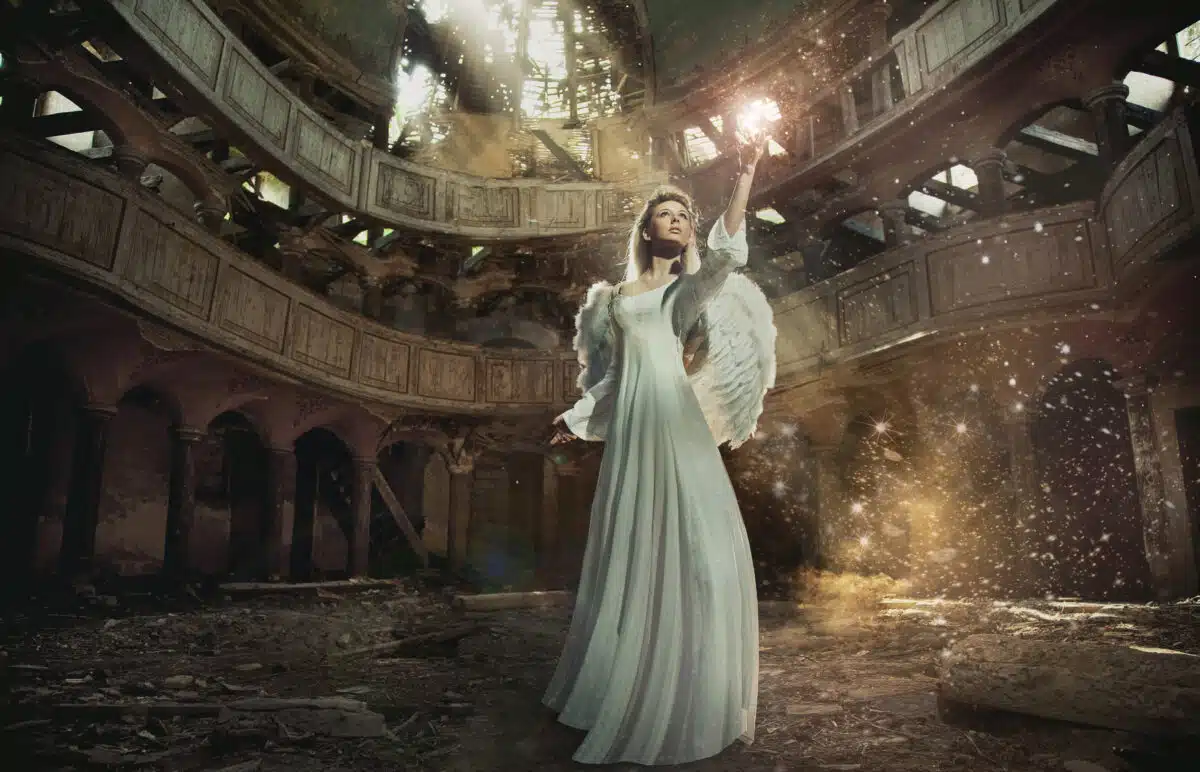
“Woman” by Thomas Frederick Young
I’ve had my share of bright employ,
My share of pain and blame,
But thro’ it all, I’ve thought, with joy,
Of tender woman’s name.
Her healing tones have often brought
New gladness to my soul;
Her breath hath rent the darken’d clouds,
That often o’er it roll.
Her voice hath often cheer’d my heart,
In sickness and in pain,
And help’d me bear the surgeon’s knife,
Or fever’s fervid reign.
But, oh, that voice can change its tone,
That tender feeling die,
Those gentle, loving tones become
A terrorizing cry.
In kindly sound, a woman’s voice
Is happiness alone;
And may it ever be my lot
To hear its tender tone.
But let me never know the thoughts
Of vengeful woman’s heart,
Or hear the voice that breathes them forth,
With cold and cruel dart.
O woman, thou hast mighty pow’r
Among the sons of men,
For thou canst make deep, rankling wounds,
And heal them up again.
Oh, let thy angel nature shine,
And may we all refrain
To wake the tiger in thy breast,
Bound by a slender chain.
“What Shall I Give Her?” by Unknown
What shall I give my love—
This gray haired woman;
What shall I give her?
Since by fate brought together
Wetwo have wrought together,
Helping each other In deed, in thought.
Each has made the other stronger,
Made this life worth living longer,
Which else were not.
What shall I give her ?
What shall I give my love—
This gray haired woman;
What shall I give her?
The morn should sing it to me,
The night should bring it to me—
The thought I seek;
So close as we,
Subtle instinct of affection
Should make easy the selection.
What shall it be?
What shall I give her?
Our beings have a single sum,
Our thoughts in the same channels flow—
This happiness to us has come—
No more we seek or care to know.
Wound through the fibre of each heart,
Like wire of gold through potter’s clay,
This knowledge is the richest part,
Love’s handiwork—love’s cloisonn
What shall I give my love—
This gray haired woman!
It matters not!
I could but ponder o’er it,
She could but wonder o’er it.
Why! she has got AllI can give!
In one our lives are blended,
As one they will be ended;
So do we live.
What could I give her?
“Her Picture” by Joaquin Miller
I see her now-the fairest thing
That ever mocked man’s picturing.
I picture her as one who drew
Aside life’s curtain and looked through
The mists of life’s mystery
As from wood to open sea.
The soft, wide eyes of wonderment
That trustingly looked you through and through:
The sweet, arched mouth a bow new bent,
That sent love’s arrow swift and true.
The sweet, arched mouth! The Orient
Hath not such pearls in al lher stores:
Not all her storied, spice- set shores
Has fragrance such as it hath spent.
I picture her as one who knew
How rare is truth to be untrue
As one who knew the awful sign
Of death, of life, of the divine
Sweet pity of all loves, all hates,
Beneath the iron-footed fates.
I picture ner as seeking peace,
And olive leaves and vine-set land;
While strife stood by on either hand,
And wrung her tears like rosaries.
I picture her as passing rhyme,
As of, yet not a part of, these—
A woman born above her time;
Awoman waiting in her place,
With patient pity on her face.
Her face, her earnest baby face;
Her young face, so uncommon wise—
The tender love-light in her eyes—
Two stars of heaven out of place.
Two stars that sang as stars of old
Their silent eloquence of song,
From skies of glory and of gold,
Where God in purple passed along—
That patient, baby face of hers
That won a thousand worshippers.
That silent, pleading face; among
Ten thousand faces just the one
I still shall love when all is done,
And life lies by, a harp unstrung.
That face, like shining sheaves among;
That face, half hid ‘ mid sheaves of gold;
That face, that never can grow old,
And yet has never been quite young
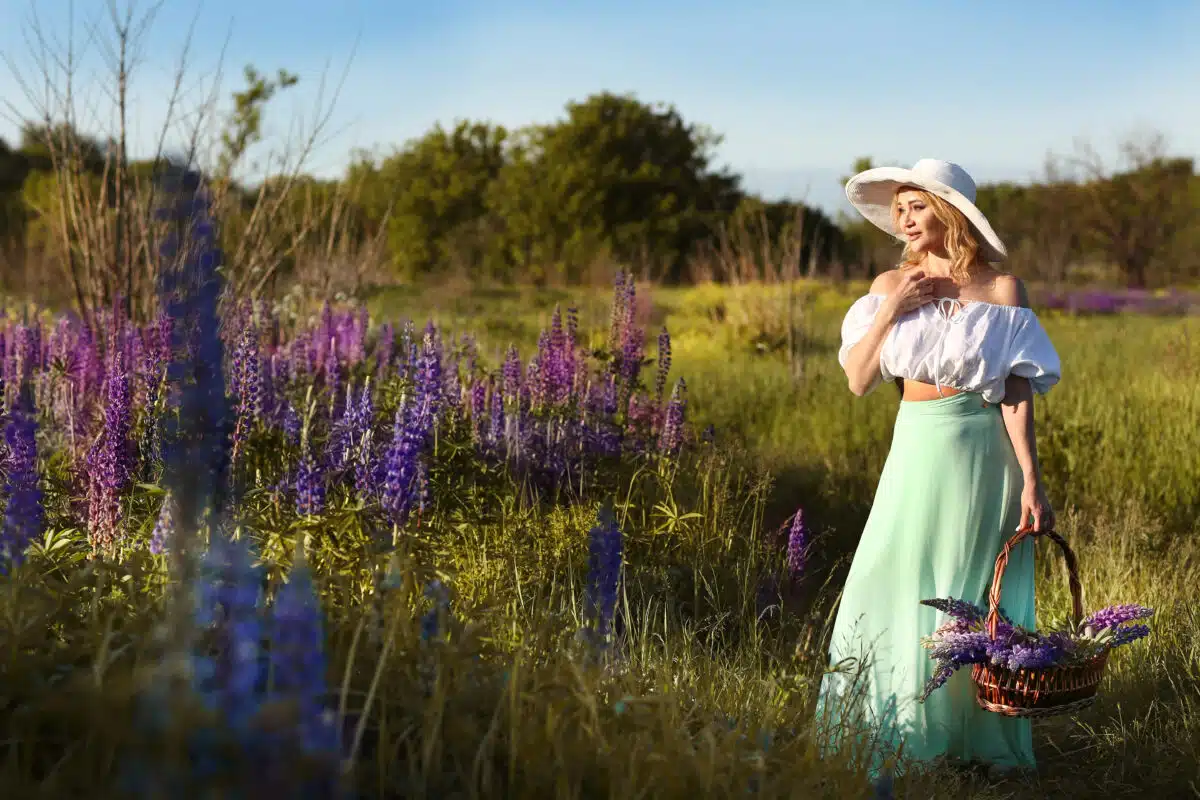
“Sonnet 130: My mistress’ eyes are nothing like the sun” by William Shakespeare
My mistress’ eyes are nothing like the sun;
Coral is far more red than her lips’ red;
If snow be white, why then her breasts are dun;
If hairs be wires, black wires grow on her head.
I have seen roses damasked, red and white,
But no such roses see I in her cheeks;
And in some perfumes is there more delight
Than in the breath that from my mistress reeks.
I love to hear her speak, yet well I know
That music hath a far more pleasing sound;
I grant I never saw a goddess go;
My mistress, when she walks, treads on the ground.
And yet, by heaven, I think my love as rare
As any she belied with false compare.
“O woman whose familiar face I hold” by Arthur William Edgar O’Shaughnessy
O woman whose familiar face I hold
In my most sacred thought as in a shrine,
Who in my memories art become divine—
Dost thou remember now those years of old
When out of all thine own life thou didst mould
This life and breathe thy heart in this of mine,
Winning, for faith in that fair work of thine,
To rest and be in heaven?—Alas, behold! —
Another woman coming after thee
Hath had small pity, -with a wanton kiss
Hath quite consumed my heart and ruined this
The life that was thy work: O, Mother, see;
Thou hast lived all in vain, done all amiss;
Come down from heaven again, and die with me!
Poems on Women Empowerment
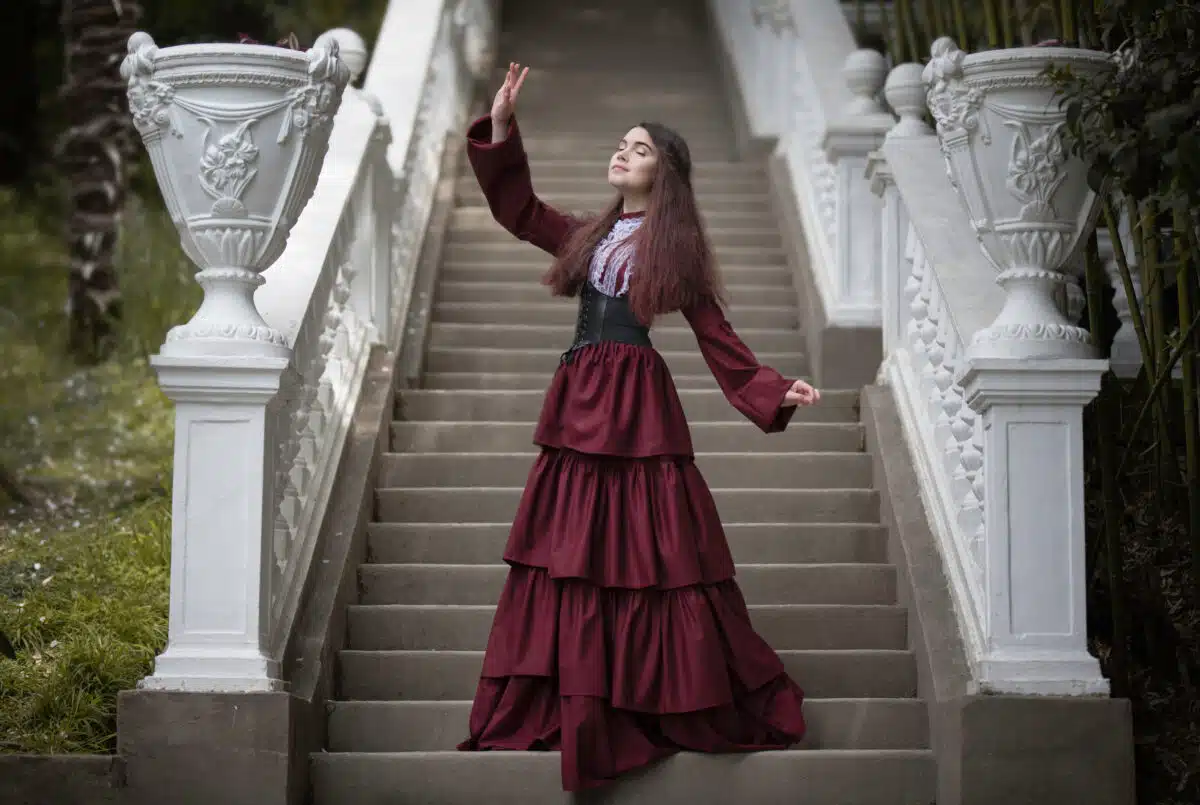
“Women of To-day” by Charlotte Perkins Gilman
You women of today who fear so much
The women of the future, showing how
The dangers of her course are such and such–
What are you now?
Mothers and Wives and Housekeepers, forsooth!
Great names, you cry, full scope to rule and please,
Room for wise age and energetic youth!–
But are you these?
Housekeepers? Do you then, like those of yore,
Keep house with power and pride, with grace and ease?
No, you keep servants only! What is more–
You don’t keep these!
Wives, say you? Wives! Blessed indeed are they
Who hold of love the everlasting keys,
Keeping your husbands’ hearts! Alas the day!
You don’t keep these!
And mothers? Pitying Heaven! Mark the cry
From cradle death-beds! Mothers on their knees!
Why, half the children born, as children, die!
You don’t keep these!
And still the wailing babies come and go,
And homes are waste, and husband’s hearts fly far;
There is no hope until you dare to know
The thing you are!
“The Bravery of Battles” by Joaquin Miller
The bravest battle that ever was fought,
Shall I tell you where and when?
On the maps of the world you’ll find it not,
“Twas fought by the mothers of men.
Nay, not with cannon or battle shot,
With sword or noble pen;
Nay, not with eloquent word or thought,
From the mouths of wonderful men.
But deep in the walled- up woman’s heart—
Of woman that would not yield,
But bravely, silently bore her part—
Lo! there is the battlefield.
No marshalling troop, no bivouac song,
No banner to gleam and wave!
But 0, these battles! they last so long,
From babyhood to the grave.
“Advice to the Girls” by Frances Ellen Watkins Harper
Nay, do not blush! I only heard
You had a mind to marry;
I thought I’d speak a friendly word,
So just one moment tarry.
Wed not a man whose merit lies
In things of outward show,
In raven hair or flashing eyes,
That please your fancy so.
But marry one who’s good and kind,
And free from all pretence;
Who, if without a gifted mine,
At least has common sense.
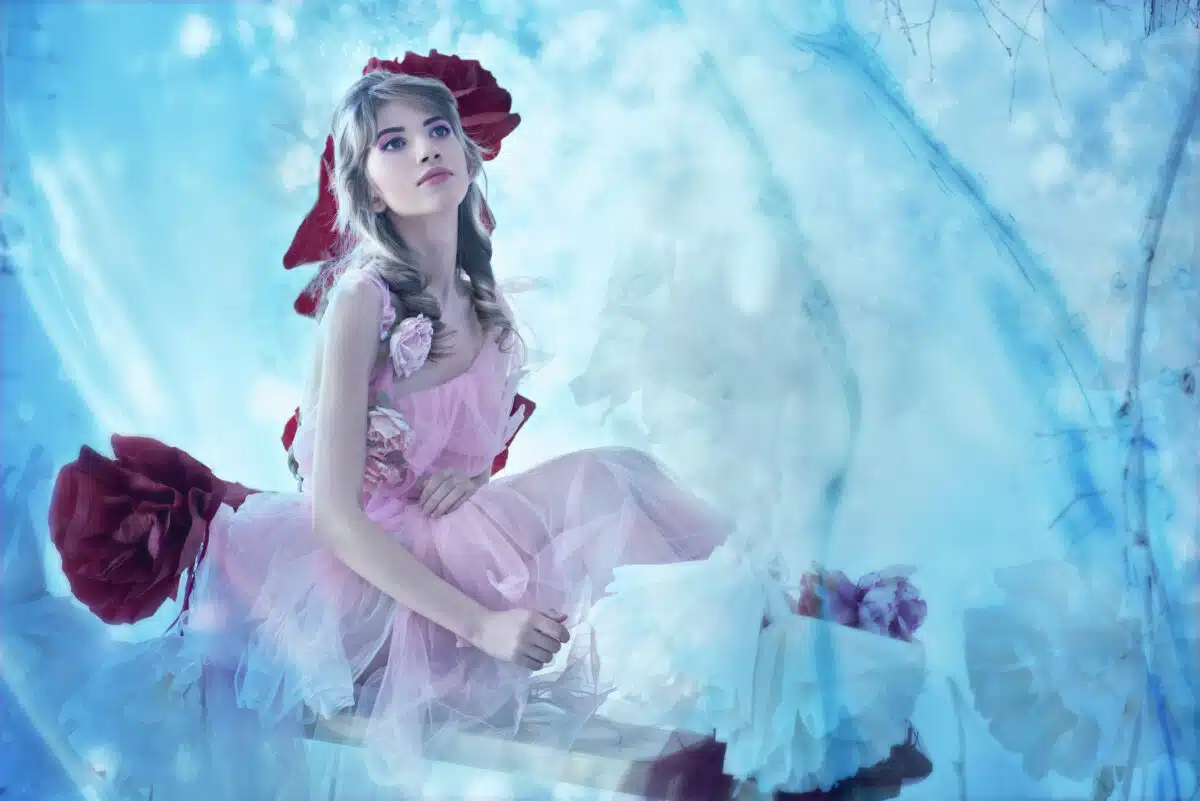
“Womanhood” by Ella Wheeler Wilcox
She must be honest, both in thought and deed,
Of generous impulse, and above all greed;
Not seeking praise, or place, or power, or pelf,
But life’s best blessings for her higher self,
Which means the best for all.
She must have faith,
To make good friends of Trouble, Pain, and Death,
And understand their message.
She should be
As redolent with tender sympathy
As is a rose with fragrance.
Cheerfulness
Should be her mantle, even though her dress
May be of Sorrow’s weaving.
On her face
A loyal nature leaves its seal of grace,
And chastity is in her atmosphere.
Not that chill chastity which seems austere
Like untrod snow-peaks, lovely to behold
Till once attained – then barren, loveless, cold);
But the white flame that feeds upon the soul
And lights the pathway to a peaceful goal.
A sense of humour, and a touch of mirth,
To brighten up the shadowy spots of earth;
And pride that passes evil – choosing good.
All these unite in perfect womanhood.
“We As Women” by Charlotte Perkins Gilman
There‘s a cry in the air about us–
We hear it, before, behind–
Of the way in which “We, as women,”
Are going to lift mankind!
With our white frocks starched and ruffled,
And our soft hair brushed and curled–
Hats off! for “We, as women,”
Are coming to save the world.
Fair sisters! listen one moment–
And perhaps you‘ll pause for ten:
The business of women as women
Is only with men as men!
What we do, “We, as women,”
We have done all through our life;
The work that is ours as women
Is the work of mother and wife.
But to elevate public opinion,
And to lift up erring man,
Is the work of the Human Being;
Let us do it–if we can.
But wait, warm-hearted sisters–
Not quite so fast, so far.
Tell me how we are going to lift a thing
Any higher than we are!
We are going to “purify politics,”
And to “elevate the press.”
We enter the foul paths of the world
To sweeten and cleanse and bless.
To hear the high things we are going to do,
And the horrors of man we tell,
One would think, “We, as women,” were angels,
And our brothers were fiends of hell.
We, that were born of one mother,
And reared in the self-same place,
In the school and the church together,
We of one blood, one race!
Now then, all forward together!
But remember, every one,
That ‘tis not by feminine innocence
The work of the world is done.
The world needs strength and courage,
And wisdom to help and feed–
When, “We, as women” bring these to man,
We shall lift the world indeed.
“Lines” by Thomas Moore
Alone by the Schuylkill a wanderer rov’d,
And bright were its flowery banks to his eye;
But far, very far were the friends that he lov’d ,
And he gaz’d on its flowery banks with a sigh.
O Nature, though blessed and bright are thy rays,
O’er the brow of creation enchantingly thrown ,
Yet faint are they all to the lustre that plays
In a smile from the heart that is fondly our own.
Nor long did the soul of the stranger remain
Unblest by the smile he had languish’d to meet;
Though scarce did he hope it would soothe him again ,
Till the threshold of home had been press’d by his
feet.
But the lays of his boyhood had stol’n to their ear,
And they lov’d what they knew of so humble a
name ;
And they told him, with flattery welcome and dear,
That they found in his heart something better than
fame.
Nor did woman—O woman ! whose form and whose
soul
Are the spell and the light of each path we pursue;
Whether sunn’d in the tropics or chill’d at the pole,
If woman be there, there is happiness too:—
Nor did she her enamouring magic deny, —
That magic his heart had relinquish’d so long, —
Like eyes he had lov’d was her eloquent eye,
Like them did it soften and weep at his song.
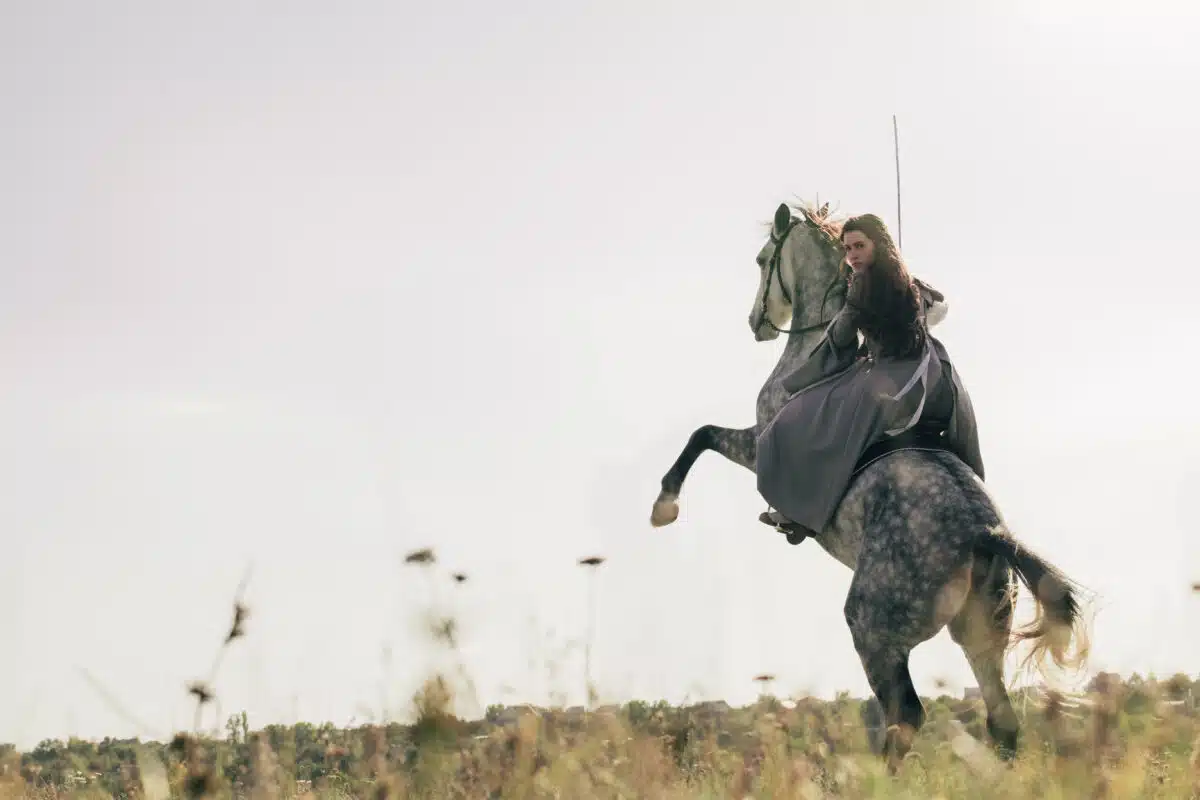
“Woman On The Field Of Battlefield” by Felicia Hemans
Gentle and lovely form!
What didst thou here,
When the fierce battle-storm
Bore down the spear?
Banner and shiver’d crest,
Beside thee strown,
Tell that amidst the best
Thy work was done!
Yet strangely, sadly fair,
O’er the wild scene,
Gleams, through its golden hair,
That brow serene.
Low lies the stately head,-
Earth-bound the free;
Howgave those haughty dead
Aplace to thee?
Slumberer ! thine early bier
Friends should have crown’d,
Many a flower and tear
Shedding around;—
Soft voices, clear and young,
Mingling their swell,
Should o’er thy dust have sung
Earth’s last farewell;-
Sisters, above the grave
Ofthy repose,
Should have bid violets wave
With the white rose.
Now must the trumpet’s note,
Savage and shrill,
For requiem o’er thee float,
Thou fair and still!
And the swift charger sweep
In full career,
Trampling thy place of sleep
Why cam’st thou here?
Why? Ask the true heart why
Woman hath been
Ever where brave men die,
Unshrinking seen?
Unto this harvest ground
Proud reapers came, —
Some, for that stirring sound,
A warrior’s name;
Some for the stormy play
And joy of strife;
And some to fling away
A weary life ;-
But thou, pale sleeper ! thou
With the slight frame,
And the rich locks, whose glow
Death cannot tame;
Only one thought, one power,
Thee could have led,
So, through the tempest’s hour,
To lift thy head !
Only the true, the strong,
The love, whose trust
Woman’s deep soul too long
Pours on the dust!
From “Creation” by Arthur William Edgar O’Shaughnessy
And God said, “Let us make a thing most fair,—
A Woman with gold hair, and eyes all blue:”
He took from the sun gold and made her hair,
And for her eyes He took His heaven’s own hue.
He sought in every precious place and store,
And gathered all sweet essences that are
In all the bodies : so He made one more
Her body, the most beautiful by far.
Pure coral with pure pearl engendering,
Bore Her the fairest flower of the sea;
And for the wonder of that new-made thing
God ceased then, and nothing more made He.
So the beginning of her was this way:
Full of sea savours, beautiful and good,
Made of sun, sky, and sea, -more fair than they—
On the green margin of the sea she stood.
The coral colour lasted in her veins,
Made her lips rosy like a sea-shell’s rims;
The purple stained her cheeks with splendid stains,
And the pearl’s colour clung upon her limbs.
She took her golden hair between her hands;
The faded gold and amber of the seas
Dropped from it in a shower upon the sands;
The crispéd hair enwrapped her like a fleece:
And through the threads of it the sun lost gold,
And fell all pale upon her throat and breast
With play of lights and tracings manifold:
But the whole heaven shone full upon the rest.
“Partners” by Alice Duer Miller
Lady, lovely lady, come and share
All my care;
Oh how gladly I will hurry
To confide my every worry
(And they’re very dark and drear)
In your ear.
Lady, share the praise I obtain
Now and again;
Though I’m shy, it doesn’t matter,
I will tell you how they flatter:
Every compliment I’ll share
Fair and square.
Lady, I my toil will divide
At your side;
I outside the home, you within;
You shall wash and cook and spin,
I’ll provide the flax and food,
If you’re good.
Partners, lady, we shall be,
You and me,
Partners in the highest sense
Looking for no recompense,
For, the savings that we make,
I shall take.
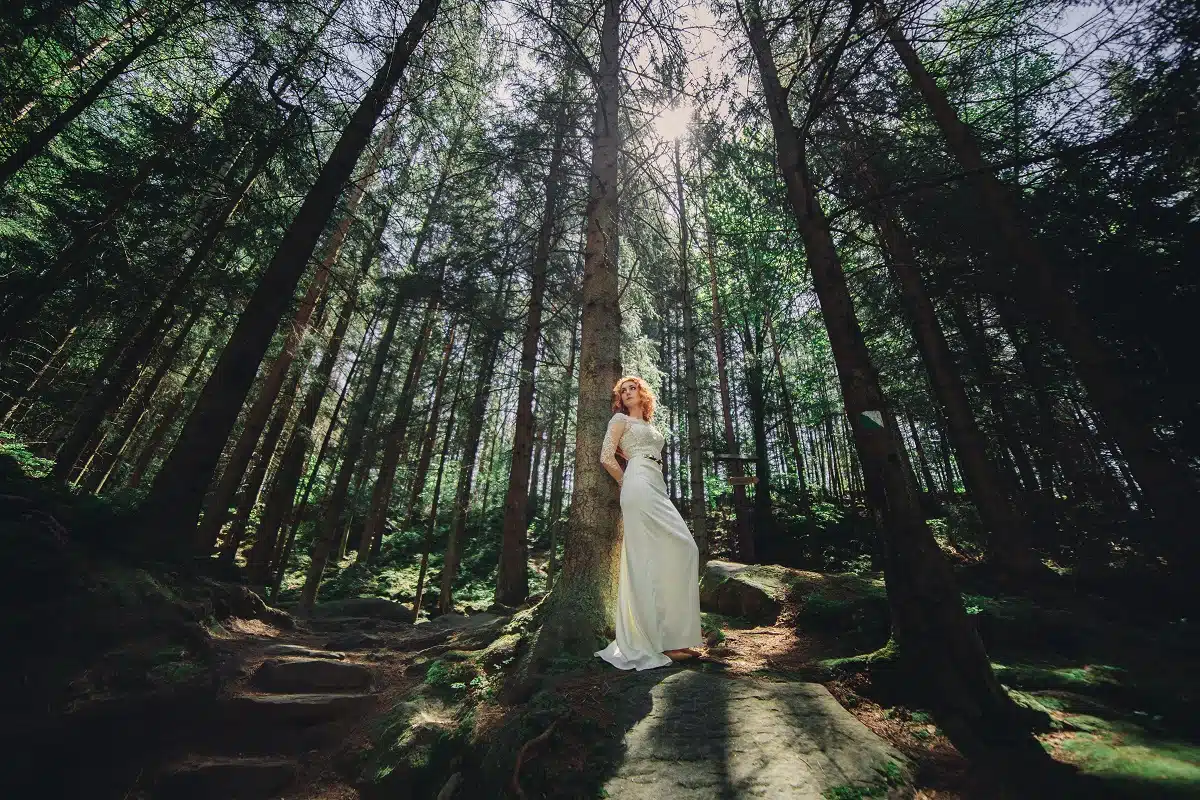
“A True Woman” by William Wordsworth
She was a phantom of delight
When first she gleamed upon my sight;
A lovely apparition, sent
To be a moment’s ornament;
Her eyes as stars of twilight fair,
Like twilight’s, too, her dusky hair;
But all things else about her drawn
From May-time and the cheerful dawn
A dancing shape, an image gay,
To haunt, to startle , and waylay.
I saw her upon nearer view,
A spirit, yet a woman too!
Her household motions light and free,
And steps of virgin liberty;
A countenance in which did meet
Sweet records, promises as sweet;
A creature not too bright or good
For human nature’s daily food,
For transient sorrows, simple wiles,
Praise, blame, love, kisses, tears, and smiles.
And now I see with eye serene
The very pulse of the machine;
Abeing breathing thoughtful breath,
Atraveller betwixt life and death;
The reason firm, the temperate will,
Endurance, foresight, strength, and skill;
A perfect woman, nobly planned,
To warn, to comfort, and command;
And yet a spirit still, and bright
With something of an angel light.
“The Bride” by Sappho (Percy Osborn, Translator)
None so lovely, none
E’er beheld the sun;
Bridegroom, where O where
Bloomed a bride so fair?
None is like her, none!
From “In Honour of that High and Mighty Princess, Queen Elizabeth” by Anne Bradstreet
The Poem.
No Phoenix Pen, nor Spenser’s Poetry,
No Speed’s, nor Camden’s learned History;
Eliza’s works, wars, praise, can e’re compact,
The World’s the Theater where she did act.
No memories, nor volumes can contain,
The nine Olymp’ades of her happy reign,
Who was so good, so just, so learn’d, so wise,
From all the Kings on earth she won the prize.
Nor say I more than truly is her due.
Millions will testify that this is true.
She hath wip’d off th’ aspersion of her Sex,
That women wisdom lack to play the Rex.
Spain’s Monarch sa’s not so, not yet his Host:
She taught them better manners to their cost.
The Salic Law had not in force now been,
If France had ever hop’d for such a Queen.
But can you Doctors now this point dispute,
She’s argument enough to make you mute,
Since first the Sun did run, his ne’er runn’d race,
And earth had twice a year, a new old face;
Since time was time, and man unmanly man,
Come shew me such a Phoenix if you can.
Was ever people better rul’d than hers?
Was ever Land more happy, freed from stirs?
Did ever wealth in England so abound?
Her Victories in foreign Coasts resound?
Ships more invincible than Spain’s, her foe
She rack’t, she sack’d, she sunk his Armadoe.
Her stately Troops advanc’d to Lisbon’s wall,
Don Anthony in’s right for to install.
She frankly help’d Franks’ (brave) distressed King,
The States united now her fame do sing.
She their Protectrix was, they well do know,
Unto our dread Virago, what they owe.
Her Nobles sacrific’d their noble blood,
Nor men, nor coin she shap’d, to do them good.
The rude untamed Irish she did quell,
And Tiron bound, before her picture fell.
Had ever Prince such Counsellors as she?
Her self Minerva caus’d them so to be.
Such Soldiers, and such Captains never seen,
As were the subjects of our (Pallas) Queen:
Her Sea-men through all straits the world did round,
Terra incognitæ might know her sound.
Her Drake came laded home with Spanish gold,
Her Essex took Cadiz, their Herculean hold.
But time would fail me, so my wit would too,
To tell of half she did, or she could do.
Semiramis to her is but obscure;
More infamy than fame she did procure.
She plac’d her glory but on Babel’s walls,
World’s wonder for a time, but yet it falls.
Fierce Tomris (Cirus’ Heads-man, Sythians’ Queen)
Had put her Harness off, had she but seen
Our Amazon i’ th’ Camp at Tilbury,
(Judging all valour, and all Majesty)
Within that Princess to have residence,
And prostrate yielded to her Excellence.
Dido first Foundress of proud Carthage walls
(Who living consummates her Funerals),
A great Eliza, but compar’d with ours,
How vanisheth her glory, wealth, and powers.
Proud profuse Cleopatra, whose wrong name,
Instead of glory, prov’d her Country’s shame:
Of her what worth in Story’s to be seen,
But that she was a rich Ægyptian Queen.
Zenobia, potent Empress of the East,
And of all these without compare the best
(Whom none but great Aurelius could quell)
Yet for our Queen is no fit parallel:
She was a Phoenix Queen, so shall she be,
Her ashes not reviv’d more Phoenix she.
Her personal perfections, who would tell,
Must dip his Pen i’ th’ Heliconian Well,
Which I may not, my pride doth but aspire
To read what others write and then admire.
Now say, have women worth, or have they none?
Or had they some, but with our Queen is’t gone?
Nay Masculines, you have thus tax’d us long,
But she, though dead, will vindicate our wrong.
Let such as say our sex is void of reason
Know ‘tis a slander now, but once was treason.
But happy England, which had such a Queen,
O happy, happy, had those days still been,
But happiness lies in a higher sphere.
Then wonder not, Eliza moves not here.
Full fraught with honour, riches, and with days,
She set, she set, like Titan in his rays.
No more shall rise or set such glorious Sun,
Until the heaven’s great revolution:
If then new things, their old form must retain,
Eliza shall rule Albian once again.
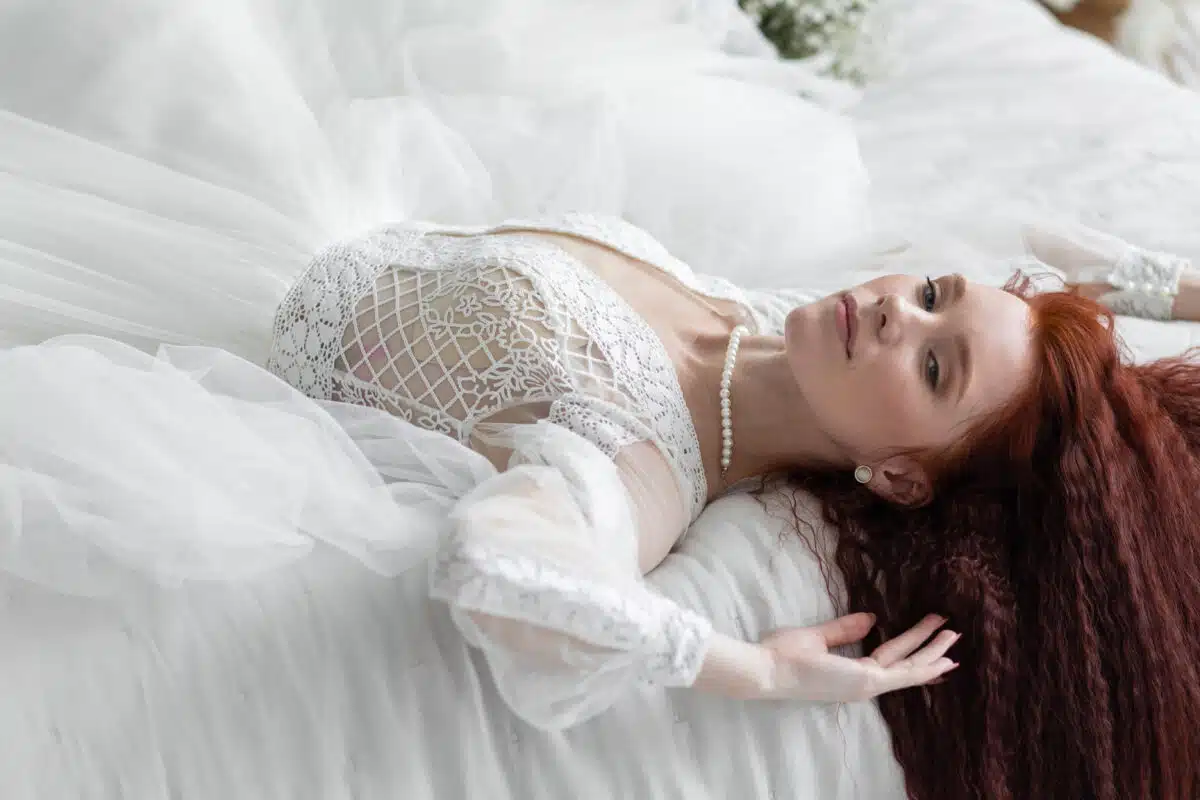
From “I Sing The Body Electric” by Walt Whitman
This is the female form;
A divine nimbus exhales from it from head to foot;
It attracts with fierce undeniable attraction!
I am drawn by its breath as if I were no more than a helpless vapor – all falls aside but myself and it;
Books, art, religion, time, the visible and solid earth, the atmosphere and the clouds, and what was expected of heaven or fear’d of hell, are now consumed;
Mad filaments, ungovernable shoots play out of it – the response likewise ungovernable;
Hair, bosom, hips, bend of legs, negligent falling hands, all diffused – mine too diffused;
Ebb stung by the flow, and flow stung by the ebb – love-flesh swelling and deliciously aching;
Limitless limpid jets of love hot and enormous, quivering jelly of love, white-blow and delirious juice;
Bridegroom night of love, working surely and softly into the prostrate dawn;
Undulating into the willing and yielding day,
Lost in the cleave of the clasping and sweet-flesh’d day.
This is the nucleus – after the child is born of woman, the man is born of woman;
This is the bath of birth – this is the merge of small and large, and the outlet again.
Be not ashamed, women – your privilege encloses the rest, and is the exit of the rest;
You are the gates of the body, and you are the gates of the soul.
The female contains all qualities, and tempers them – she is in her place, and moves with perfect balance;
She is all things duly veil’d – she is both passive and active;
She is to conceive daughters as well as sons, and sons as well as daughters.
As I see my soul reflected in nature;
As I see through a mist, one with inexpressible completeness and beauty,
See the bent head, and arms folded over the breast – the female I see.
“The Protected Sex” by Alice Duer Miller
There, little girl, don’t read,
You’re fond of your books, I know,
But Brother might mope
If he had no hope
Of getting ahead of you.
It’s dull for a boy who cannot lead.
There, little girl, don’t read.
“Females” by Charlotte Perkins Gilman
The female fox she is a fox;
The female whale a whale;
The female eagle holds her place
As representative of race
As truly as the male.
The mother hen doth scratch for her chicks,
And scratch for herself beside;
The mother cow doth nurse her calf,
Yet fares as well as her other half
In the pasture far and wide.
The female bird doth soar in air;
The female fish doth swim;
The fleet-foot mare upon the course
Doth hold her own with the flying horse–
Yea and she beateth him!
One female in the world we find
Telling a different tale.
It is the female of our race,
Who holds a parasitic place
Dependent on the male.
Not so, saith she, ye slander me!
No parasite am I.
I earn my living as a wife;
My children take my very life;
Why should I share in human strife,
To plant and build and buy?
The human race holds highest place
In all the world so wide,
Yet these inferior females wive,
And raise their little ones alive,
And feed themselves beside.
The race is higher than the sex,
Though sex be fair and good;
A Human Creature is your state,
And to be human is more great
Than even womanhood!
The female fox she is a fox;
The female whale a whale;
The female eagle holds her place
As representative of race
As truly as the male.

“A Lady” by Amy Lowell
You are beautiful and faded,
Like an old opera tune
Played upon a harpsichord;
Or like the sun-flooded silks
Of an eighteenth-century boudoir. In your eyes
Smoulder the fallen roses of outlived minutes,
And the perfume of your soul
Is vague and suffusing,
With the pungence of sealed spice-jars.
Your half-tones delight me,
And I grow mad with gazing
At your blent colors.
My vigor is a new-minted penny,
Which I cast at your feet.
Gather it up from the dust
That its sparkle may amuse you.
“Warning to Suffragists” by Alice Duer Miller
They must sacrifice their beauty
Who would do their civic duty,
Who the polling booth would enter,
Who the ballot box would use;
As they drop their ballots in it
Men and women in a minute,
Lose their charm, the antis tell us,
But—the men have less to lose.
“To the Indifferent Women” by Charlotte Perkins Gilman
You who are happy in a thousand homes,
Or overworked therein, to a dumb peace;
Whose souls are wholly centered in the life
Of that small group you personally love–
Who told you that you need not know or care
About the sin and sorrow of the world?
Do you believe the sorrow of the world
Does not concern you in your little homes?
That you are licensed to avoid the care
And toil for human progress, human peace,
And the enlargement of our power of love
Until it covers every field of life?
The one first duty of all human life
Is to promote the progress of the world
In righteousness, in wisdom, truth and love;
And you ignore it, hidden in your homes,
Content to keep them in uncertain peace,
Content to leave all else without your care.
Yet you are mothers! And a mother’s care
Is the first step towards friendly human life.
Life where all nations in untroubled peace
Unite to raise the standard of the world
And make the happiness we seek in homes
Spread everywhere in strong and fruitful love.
You are content to keep that mighty love
In its first steps forever; the crude care
Of animals for mate and young and homes,
Instead of poring it abroad in life,
Its mighty current feeding all the world
Till every human child shall grow in peace.
You cannot keep your small domestic peace,
Your little pool of undeveloped love,
While the neglected, starved, unmothered world
Struggles and fights for lack of mother’s care,
And its tempestuous, bitter, broken life
Beats in upon you in your selfish homes.
We all may have our homes in joy and peace
When woman’s life, in its rich power of love
Is joined with man’s to care for all the world!

“Freedom, Our Queen” by Oliver Wendell Holmes
Land where the banners wave last in the sun,
Blazoned with star-clusters, many in one,
Floating o’er prairie and mountain and sea;
Hark! ‘t is the voice of thy children to thee!
Here at thine altar our vows we renew
Still in thy cause to be loyal and true,–
True to thy flag on the field and the wave,
Living to honor it, dying to save!
Mother of heroes! if perfidy’s blight
Fall on a star in thy garland of light,
Sound but one bugle-blast! Lo! at the sign
Armies all panoplied wheel into line!
Hope of the world! thou’hast broken its chains,–
Wear thy bright arms while a tyrant remains,
Stand for the right till the nations shall own
Freedom their sovereign, with Law for her throne!
Freedom! sweet Freedom! our voices resound,
Queen by God’s blessing, unsceptred, uncrowned!
Freedom, sweet Freedom, our pulses repeat,
Warm with her life-blood, as long as they beat!
Fold the broad banner-stripes over her breast,–
Crown her with star-jewels Queen of the West!
Earth for her heritage, God for her friend,
She shall reign over us, world without end!
Funny Women’s Day Poems

“Woman” by Anonymous
When Eve brought woe to all mankind
Old Adam called her wo-man;
But when she wooed with love so kind,
He then pronounced her woo-man.
But now, with folly and with pride,
Their husbands’ pockets trimming,
The women are so full of whims
That men pronounce them wimmen!
“Women’s Chorus” by Aristophanes (William Collins, Translator)
They’re always abusing the women,
As a terrible plague to men:
They say we ’re the root of all evil,
And repeat it again and again;
Of war, and quarrels, and bloodshed,
All mischief, be what it may!
And pray, then, why do you marry us,
If we ’re all the plagues you say?
And why do you take such care of us,
And keep us so safe at home,
And are never easy a moment
If ever we chance to roam?
When you ought to be thanking heaven
That your Plague is out of the way,
You all keep fussing and fretting—
“Where is my Plague to-day?”
If a Plague peeps out of the window,
Up go the eyes of men;
If she hides, then they all keep staring
Until she looks out again.
From “Married Miseries” by Charles Cotton
How uneasy is his life
Who is troubled with a wife!
Be she ne’er so fair or comely,
Be she ne’er so foul or homely,
Be she ne’er so young and toward,
Be she ne’er so old and froward,
Be she kind, with arms enfolding,
Be she cross and always scolding,
Be she blithe or melancholy,
Have she wit or have she folly,
Lastly, be she good or evil,
Be she saint or be she devil;
Yet uneasy is his life
Who is married to a wife.
If young and sweet, she is too tender;
If old and cross, no man can mend her;
If too, too kind, she’s ever clinging;
If a true scold, she’s ever dinging;
If a wit, she’ll still be jeering;
If a fool, she’s ever fleering;
If too wary, then she’ll shrew three;
If too lavish, she’ll undo thee;
If she be of th’ reformation,
Thy house will be a convocation, —
So uneasy is his life
Who is married to a wife.
These are all extremes, I know;
But all womankind is so;
And the golden mean to none
Of that dangerous class is known;
Or to one if known it be,
Then that one’s unknown to me.
Some Ulyssean traveller
May perhaps have gone so far
As t’ have found (in spite of Nature)
Such an admirable creature :
Yet uneasy is his life
Who is married to a wife.

“Shall Woman Smoke?” by Unknown
Shall woman smoke ? Why should she not, if she
is minded to?
Why shouldn’t women do the things that lordly
man may do?
He makes her stand on cable-cars, a-clinging to a
strap,
E’en though she step upon his feet, or tumble in
his lap.
She’s entered into politics ; she practises at law;
She’s taken up the surgeon’s work with lancet and with saw.
Some of them play at foot-ball-so we’re told ;
and there are some
Who on their safety bicycles like Boreas do hum.
Man makes her do a thousand things that once
were his to do.
If she assumes his duties, pray why not his
pleasures too?
She wears his collars, and her clothes are cut
quite as his are :
If she be mannish in her dress, why not have her
cigar?
“Lines” by Unknown
‘Man wants but little here below, “
He is not hard to please ;
But every woman that we know
Wants everything she sees.
“Ballad Of A Blighted Wooer” by H. C. M.
There were times when I quite acquiesced
In the Freedom of Woman campaign,
And the notion that wives were oppressed
Filled my sensitive bosom with pain ;
But it staggered me much when Elaine,
On the eve of our nuptial heyday,
Let it out she meant to abstain
From consenting in words to obey.
I admit she was fairly distressed
When the sequel I had to explain;
There was nothing she did not suggest
That her conscience could bear without strain.
She would love me with might and with main,
She would honor me, die for me, -nay,
But her womanhood ne’er she could stain
By consenting in words to obey.
I have argued the point, I have pressed,
But her scruples I combat in vain;
I have treated it too as a jest
Without any perceptible gain.
So the matter is like to remain,
For a registrar, needless to say,
She regards with still greater disdain
Than consenting in words to obey.
Mem: What offers? A castle in Spain;
To be let, sold, or given away!
‘Twas my wife’s, she had chosen to reign
By consenting-in words-to obey.
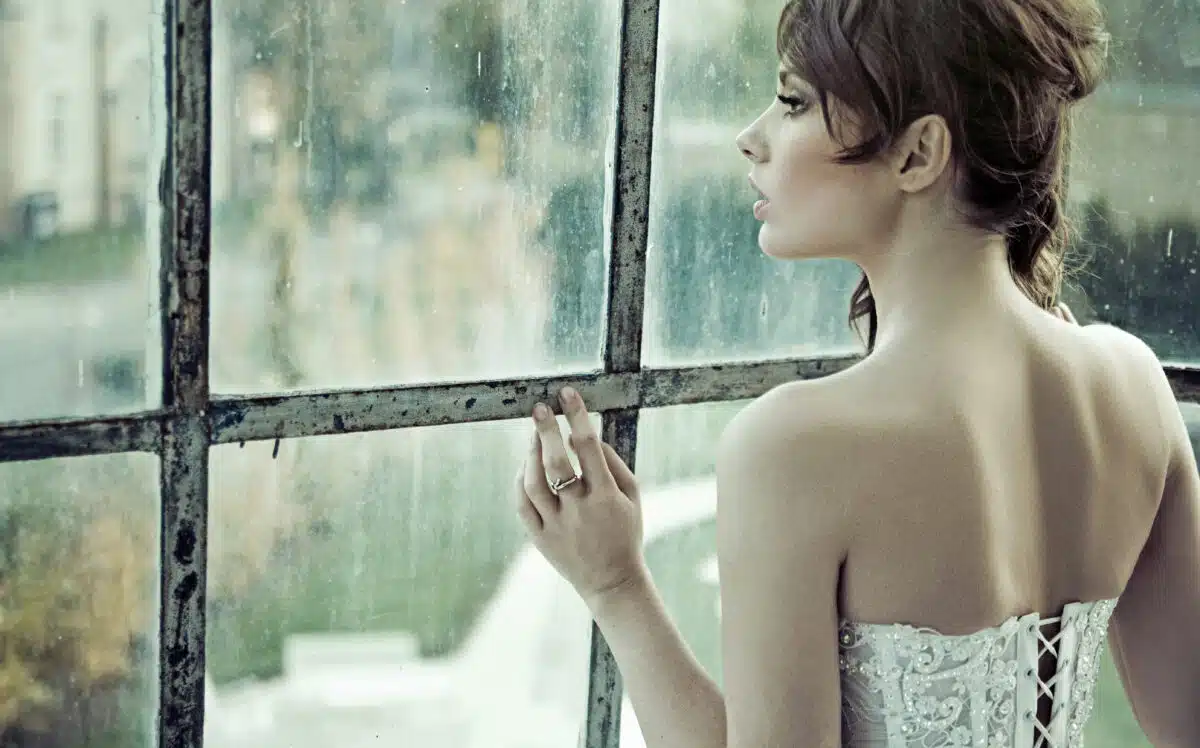
“If You Want A Kiss, Why, Take It” by Unknown
There’s a jolly Saxon proverb
That is pretty much like this, —
That a man is half in heaven
If he has a woman’s kiss.
There is danger in delaying,
For the sweetness may forsake it;
So I tell you, bashful lover,
If you want a kiss, why, take it.
Never let another fellow
Steal a march on you in this;
Never let a laughing maiden
See you spoiling for a kiss.
There’s a royal way to kissing,
And the jolly ones who make it
Have a motto that is winning, —
If you want a kiss, why, take it.
Any fool may face a cannon,
Anybody wear a crown,
But a man must win a woman
If he’d have her for his own.
Would you have the golden apple,
You must find the tree and shake it;
If the thing is worth the having,
And you want a kiss, why, take it.
Who would burn upon a desert
With a forest smiling by?
Who would change his sunny summer
For a bleak and wintry sky?
Oh, I tell you there is magic,
And you cannot, cannot break it;
For the sweetest part of loving
Is to want a kiss, and take it.
“Chivalry” by Alice Duer Miller
It’s treating a woman politely
As long as she isn’t a fright:
It’s guarding the girls who act rightly,
If you can be judge of what’s right;
It’s being—not just, but so pleasant;
It’s tipping while wages are low;
It’s making a beautiful present,
And failing to pay what you owe.
From Our Own Nursery Rhymes
“Chivalry, Chivalry, where have you been?”
“I’ve been out seeking a beautiful queen.”
“Chivalry, Chivalry, what did you find?”
“Commonplace women, not much to my mind.”
“Woman’s Advice To Woman A Hundred Years Ago” by Walter Besant
If you’d be truly blest in love,
Be constant as the turtle dove
To him whom Heaven has made your choice;
“Love and obey “-in church your voice,
For better take him, or for worse;
For bags of gold, or empty purse;
For love or hate, for peace or war;
For kiss, or kick, box, bruise or scar;
For dress or rags, for corn or chaff;
For wine or water, all or half.
Whichever is your lot in life ,
Be still the good and loving wife.
If always mindful of your duty
He will, with love, reward your beauty.
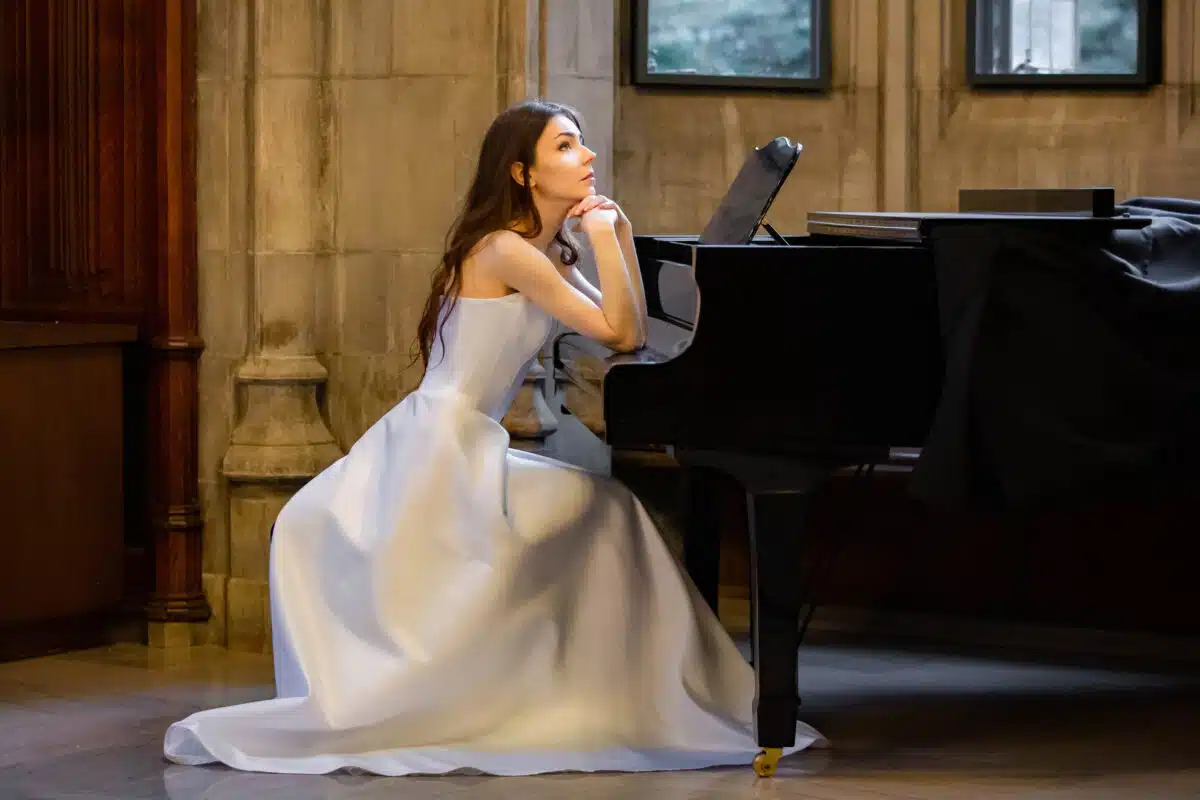
“If They Meant All They Said” by Alice Duer Miller
Charm is a woman’s strongest arm;
My charwoman is full of charm;
I chose her, not for strength of arm
But for her strange elusive charm.
And how tears heighten woman’s powers!
My typist weeps for hours and hours:
I took her for her weeping powers—
They so delight my business hours.
A woman lives by intuition.
Though my accountant shuns addition
She has the rarest intuition.
(And I myself can do addition.)
Timidity in girls is nice.
My cook is so afraid of mice.
Now you’ll admit it’s very nice
To feel your cook’s afraid of mice.
“Mutual Vows” by Alice Duer Miller
“My dear,” he said, “observe this frightful bill,
Run up, I think you’ll own, against my will.
If you will recollect our wedding day
You vowed on that occasion to obey.”
“I do recall the day,” said she, “and how
Me with your worldly goods you did endow.”
“That,” he replied, “is palpably absurd—”
“You mean you did not mean to keep your word?”
“O, yes,” he answered, “in a general way.”
“And that,” said she, “is how I meant obey.”
“Evolution” by Alice Duer Miller
Said Mr. Jones in 1910:
“Women, subject yourselves to men.”
Nineteen-Eleven heard him quote:
“They rule the world without the vote.”
By Nineteen-Twelve, he would submit
“When all the women wanted it.”
By Nineteen-Thirteen, looking glum,
He said that it was bound to come.
This year I heard him say with pride:
“No reasons on the other side!”
By Nineteen-Fifteen, he’ll insist
He’s always been a suffragist.
And what is really stranger, too,
He’ll think that what he says is true.
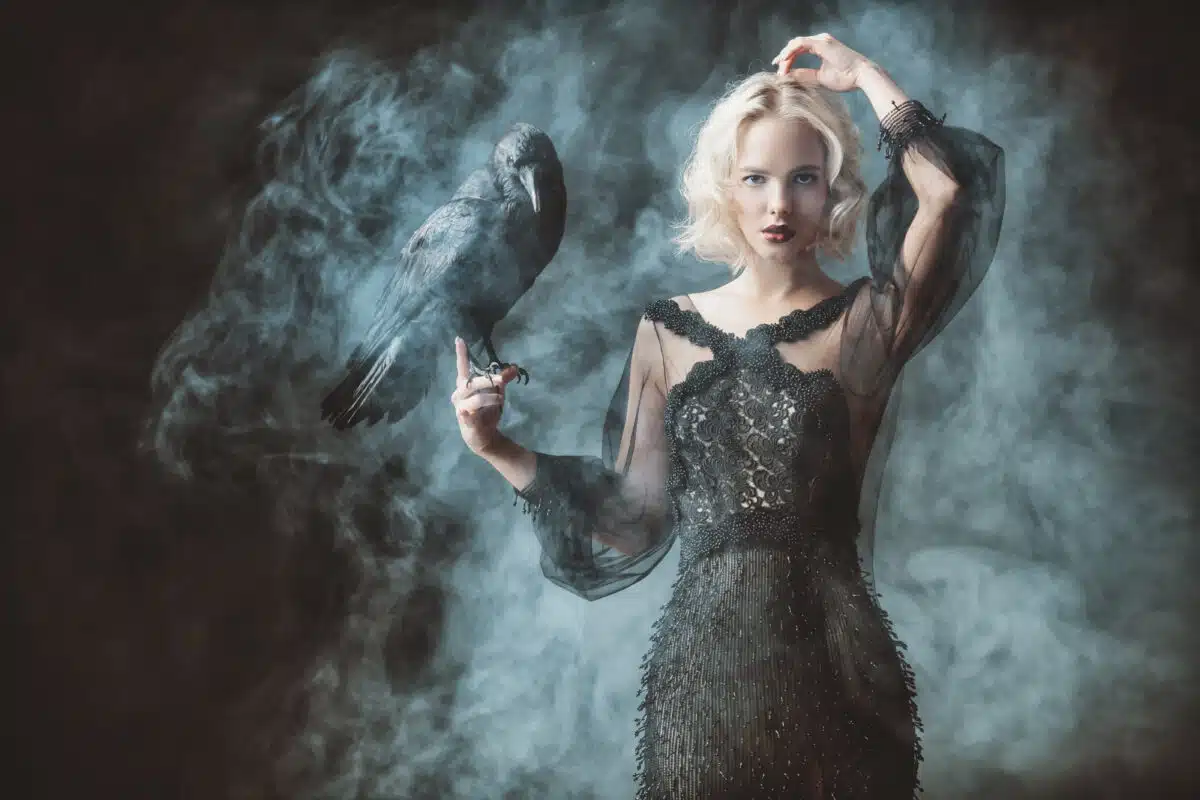
“A Weak Man And A Strong Woman” by Andrew Wanless
We met beneath the trysting tree,
The light o’ love was in her e’e,
I knew her love was a’ for me,
That Peggy would be mine.
We wander’d o’er the flow’ry brae,
To where the rippling waters play,
I kissed her lips, she ne’er said nay,
I thought she was divine.
I saw the blush upon her cheek,
I heard her words sae mild and meek,
Wi’ joy I scarce could stand or speak,
Such love there was lang-syne.
Soon we were wed, what next befell
I think black burning shame to tell,
For soon her tongue went like a bell,
With grief sair I did pine.
She aften swinged me aff my chair,
She filled my heart with black despair,
And loaded me wi’ tons o’ care,
As ye may well opine.
If she had yatter’d wi’ her tongue,
And been less free to use the rung,
To her, through life, I might ha’e clung,
And thought my lot was fine.
I’ve heard some wives when things went ‘ rang,
Would whistle up, or sing a sang,
But Peg, wi’ rage, my throat would spang—
Afore I counted nine.
I’ll saddle up my pacing horse,
And heckle her wi’ a divorce;
Then she may live with black remorse
She’ll never more be mine.
By night and day, I’ll seek a wife
Who will bring comfort to my life,
We’ll feast on love and fast from strife
And aye with Cupid dine.
But Peg saw me girth up my steed,
Slap-dash she came with headlang speed!
And like a vice she held my head
And grasped the halter line!
She cried, ” ye sumph, gang in the house,”
I sleekit in just like a mouse,
Hech me! I didna craw sae crouse,
But sore did fidge and whine.
I thought it best to bow and bend,
And think upon my latter end,
For Oh! she gave me such a send
As nearly broke my spine.
“Oh! Peg,” I yelled, ” take in the horse,
I ne’er will ride for a divorce,
Have mercy, or ye’ll end my course
Wi’ that lang halter line.”
As Tam ga’e the last sentence vent,
Instanter, Peg did sair repent,
To hug and kiss they briskly went,
Fu’ canty and fu’ fine.
Now ilka man, baith far and near,
Just gi’e your wife your breeks to wear,
And let her still the helm steer,
As Adam did lang syne.
Your life will be a honeymoon,
If ye just coax her into tune,
And feed her wi’ a soothing spoon—
And swear she is divine!
